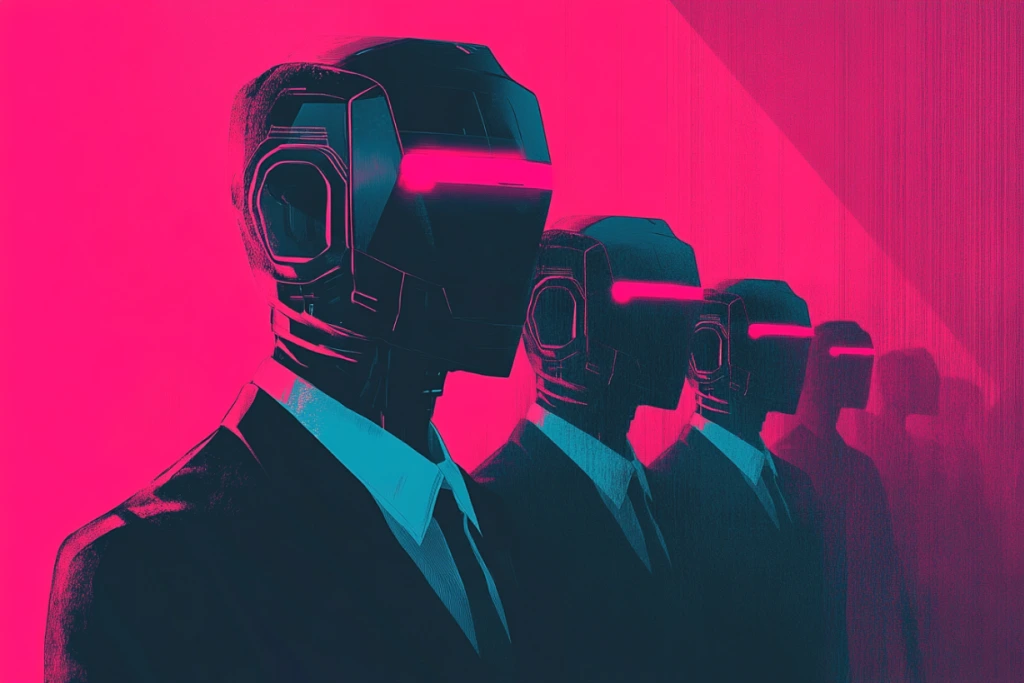It’s Monday morning, and instead of drowning in tasks, you have an AI assistant that handles customer inquiries, automates workflows, and even manages your website in multiple languages. AI agents are revolutionizing the way businesses and individuals operate, allowing them to work smarter and faster. But what exactly are AI agents, and how can you leverage them? Let’s dive in.
Start Now!
What is an AI agent?
An AI agent is an intelligent software system designed to autonomously perform tasks, interact with its environment, and make data-driven decisions—all with minimal human input. These agents are built to analyze information, predict outcomes, and take action to achieve a specific goal, making them invaluable in various industries, from customer service to business automation.
Imagine XYZ Corp, which gets hundreds of customer queries daily. To manage these efficiently without adding more staff, they use an AI agent in their customer service.
This AI agent sorts queries by type, like billing or tech support, and uses the company's CRM to access customer data for personalized responses. It learns from patterns in these queries to improve its replies or to pass complex issues to human staff. For simple questions, it gives instant answers from a knowledge base, and for tougher problems, it helps customers troubleshoot or arranges callbacks.
This approach not only speeds up response times but also keeps customers satisfied and lets human agents handle the more challenging issues.
Key characteristics of AI agents
- Autonomy: AI agents function independently, executing tasks without requiring continuous human supervision.
- Goal-oriented: They operate based on clearly defined objectives, ensuring efficiency and productivity.
- Decision-making abilities: AI agents process data, assess multiple options, and determine the best course of action.
- Adaptability: Unlike traditional AI models that rely on fixed responses, AI agents learn and evolve by analyzing past interactions and adjusting their behavior.
Sign Up!
No coding experience required.
How do AI agents differ from traditional AI models?
Traditional AI tools, like rule-based chatbots, follow predefined scripts and require human input at each step. AI agents, on the other hand, take proactive actions, problem-solve dynamically, and adjust their responses in real time. This makes them ideal for tasks that demand continuous learning and optimization, such as multilingual content generation, workflow automation, and business decision-making.
Types of AI agents

1. Reactive AI agents
- Example: Basic chatbots that provide canned responses to customer queries.
- Best for: Simple automation tasks where real-time adaptation is unnecessary.
2. Limited memory AI agents
- Example: Self-driving cars that analyze previous road conditions to navigate efficiently.
- Best for: Predictive analytics, recommendation systems, and AI-assisted decision-making.
3. Goal-oriented AI agents
- Example: AI-powered scheduling assistants that prioritize meetings based on a user's calendar.
- Best for: Automating business workflows, project management, and task execution.
4. Learning AI agents
- Example: AI-powered customer support systems that refine responses based on previous user interactions.
- Best for: Dynamic customer service, fraud detection, and personalized recommendations.
5. Multi-agent systems
A network of multiple AI agents that collaborate to solve complex problems.
- Example: AI-driven business automation tools that integrate sales, marketing, and customer service processes.
- Best for: Large-scale automation, cross-functional operations, and business intelligence.
AI agents examples
1. Customer support agents
2. Marketing & sales AI agents
3. Business operations AI agents
4. Content creation AI agents
5. AI Website Builders
Elevate your online presence with BOWWE, the perfect tool for creating websites, blogs, portfolios, and more. BOWWE’s AI Multi-Language Builder lets you easily craft multilingual content, reaching audiences around the world. Enhance your projects with advanced AI features, including a text generator with ChatGPT integration and a powerful image generator using Dall-e technology. Start building with BOWWE today and make your digital content universally accessible and visually stunning!
How do AI agents work?

Step 1: Understanding goals
Step 2: Gathering data
Step 3: Processing information
Step 4: Making decisions
Step 5: Executing actions
Consider a scenario involving a business owner aiming to optimize customer service. By deploying an AI agent, they can:
- Analyze patterns from previous customer complaints.
- Identify the most frequent issues.
- Automate responses for straightforward inquiries.
- Escalate more complex cases to human agents.
The impact? Quicker response times, more satisfied customers, and improved operational efficiency. This application not only saves valuable time but also enhances the quality of service provided, demonstrating the power of AI agents to transform business practices.
How to build an AI agent?
Step 1: Define the agent’s purpose and scope
Step 2: Choose the right technology
- Rule-Based AI: This model uses simple if-then logic and is suitable for straightforward tasks. Ideal for those new to AI technology.
- Machine Learning AI: Learns and improves from data over time. Great for tasks that involve patterns or predictive analytics.
- Deep Learning AI: Utilizes advanced neural networks to tackle complex problem-solving. Best for handling intricate processes like natural language understanding or image recognition.
Sign Up!
No coding experience required.
Step 3: Prepare data
Step 4: Train & test the AI agent
Step 5: Deploy & monitor for optimization
Step 6: Ensure compliance and security
Benefits of AI agents
- Saves time: By automating routine and repetitive tasks, AI agents free up your schedule, allowing you to focus on strategic activities that drive business growth.
- Enhances customer experience: They provide instant responses to customer inquiries, ensuring that your clients receive timely and efficient service around the clock.
- Boosts efficiency: AI agents reduce the need for extensive human intervention, thereby lowering the workload and increasing the productivity of your team.
- Improves decision-making: With access to data-driven insights, AI agents help you make more informed decisions, optimizing operations across your business.
- Supports multilingual content: Tools like BOWWE's AI Multi-Language Builder empower businesses to effortlessly expand globally by enabling the creation of multilingual websites and content, opening up new markets and customer bases.
Challenges & limitations of AI agents
- Data privacy & security risks: AI agents handle sensitive user information, which requires robust security measures to protect data and maintain user trust.
- AI bias: There is a potential for bias in decision-making, stemming from the training data. Ensuring transparency and fairness in AI operations is crucial.
- Dependence on data quality: The accuracy of AI agents is directly tied to the quality of training data. Poor quality data can lead to erroneous outputs and decisions.
- Human oversight needed: Despite the automation capabilities, certain tasks still require human judgment and intervention to ensure nuances and complex issues are appropriately handled.
Embracing the future with AI agents - summary
Start Now!
AI agents - FAQ
What is an AI agent?
An AI agent is a software program designed to perform tasks autonomously by making decisions based on its environment and achieving set goals with minimal human input.
How do AI agents work?
AI agents work by perceiving their environment through sensors or data input, processing this information using predefined rules or learning algorithms, making decisions, and then taking actions to achieve specific objectives.
What are the 5 types of AI agents?
The five types of AI agents are:
- Simple reflex agents: Act only on the current percept, ignoring the rest of the percept history.
- Model-based reflex agents: Maintain an internal state to reflect changes in the world.
- Goal-based agents: Act to achieve their goals based on their knowledge of the world.
- Utility-based agents: Aim to maximize their perceived happiness by considering the utility of different states.
- Learning agents: Improve their performance and adapt to changes over time by learning from their environment.
Which AI agent is best?
The "best" AI agent depends on the specific requirements and constraints of the task it needs to perform. For complex environments where adaptability is key, learning agents are highly effective. For simpler tasks, a model-based or simple reflex agent might suffice.
Can I create my own AI agent?
Yes, you can create your own AI agent. With access to AI development platforms and tools like TensorFlow, PyTorch, or even APIs like OpenAI’s ChatGPT, individuals can build custom AI agents tailored to their specific needs and goals.

Karol is a serial entrepreneur, e-commerce speaker m.in for the World Bank, and founder of 3 startups, as part of which he has advised several hundred companies. He was also responsible for projects of the largest financial institutions in Europe, with the smallest project being worth over €50 million.
He has two master's degrees, one in Computer Science and the other in Marketing Management, obtained during his studies in Poland and Portugal. He gained experience in Silicon Valley and while running companies in many countries, including Poland, Portugal, the United States, and Great Britain. For over ten years, he has been helping startups, financial institutions, small and medium-sized enterprises to improve their functioning through digitization.







